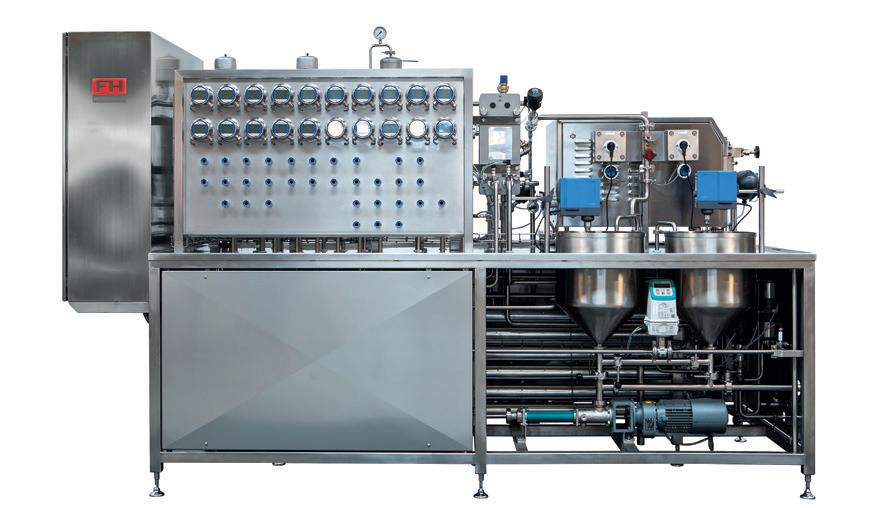[ PILOT PLANTS ]
Food industry pilots in close cooperation More and more companies make use of test productions in small pilot plants, and this has created a constructive collaboration between the largest in the field. Mælkeritidende participated in the network meeting in November 2021 hosted by the AFI Innovation Centre, where recruitment challenges were specific points of discussion. Modern food producers devote a lot of resources to product development. This applies not least in the dairy industry, where everyday products are developed and refined for the average consumer at one end of the scale – and at the other end of the scale, you find high-tech products based on whey, etc. Whether you are a small or a large player, developing ingredients or new machinery, you need testing facilities where the blueprint models of the developers and researchers can be tested. And once you have embarked on the right product quality, production must subsequently be scaled up, which may involve the risk that the product behaves differently in the large facilities. This is where the pilot plants come into play. Small plants which can test small productions. With the capability to fine-tune ingredients, temperatures, pressures, storage, and all the many elements that make a dif-
ference relative to quality, shelf life, and food safety. A tool that more and more people make use of. Either at their own facility – or by renting from others with the right facility. Denmark and the other Nordic countries have actually developed a number of pilot plants in recent years. In Denmark alone, there are up to a dozen operational facilities – the majority in private companies, but with similar small-scale facilities in educational institutions such as Kold College and KU Science. The plants vary in size, from facilities with a few machines to several thousand square meters in the largest. Knowledge sharing – the most natural thing Since 2019, some of the companies with pilot plants have collaborated in the Network for Pilot Plant Managers, based in the Industry Group behind the Dairy Engineering Pro-
AFI’s Henrik Johansen (black jeans) with part of the Network Group of Pilot Plant Managers in the heart of AFI’s Pilot Plant.
TEXT AND PHOTO: LARS WINTHER
gramme, where collaboration is carried out with focus on various educational conditions. Two-four times a year, Pilot Plant Managers from the 13 different companies and educational institutions will meet, physically and online, respectively. A meeting will typically consist of a tour and a review of the host’s pilot facilities, round-table discussion providing news from each member, and discussion of one or more selected issues – possibly supplemented by an external contributor. This also applied at the meeting on November 22, which took place at the Arla Foods Ingredients’ brand new Innovation Centre at Nr. Vium close to Videbæk in West Jutland. - We know this type of collaboration from several contexts in dairy farming. It is based on a strong tradition of knowledge-sharing across companies, says Sinne Bundgaard Nielsen, Chairman of Pilot Plant Managers and also Head of Global Pilots at Arla Foods Innovation Centre. - As we emanate from the Industry Group behind the Dairy Engineering Programme, we have quite broad agendas, where – in addition to the technical challenges – we also relate to education and recruitment, Sinne Bundgaard Nielsen underscores. Recruitment is a challenge After reviewing the status of the various Pilot Plants, recruitment was on the agenda. Like
Mælkeritidende 11 / 2021
3





















